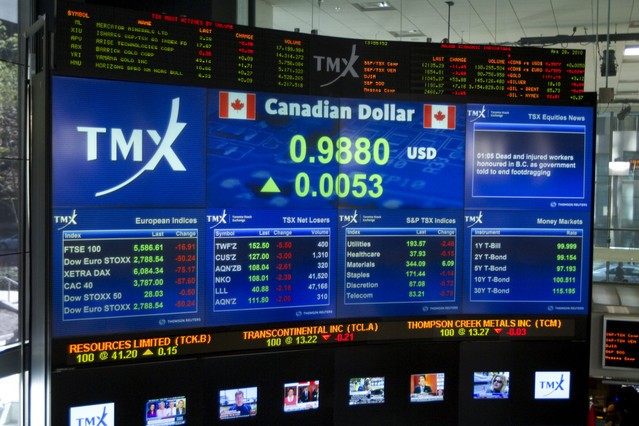Value Dividend Stocks Gain Globally as Inflation Fears Mount

Inflation-linked securities are on the rise, indicating that investors are heavily betting on a sharp rise in inflation that would otherwise see their USD, CAD, and GBP depreciate. The USD has been experiencing a weakening for a while, in part because investors are shifting to higher return assets with higher risk. However, this could very much become a self-fulfilling prophecy if the speculators are right.
Investors are turning to the assets we would expect to do well during a period of US inflation, such as gold (for its negative correlation properties with the USD), inflation-linked bonds, and property. Income-generating assets become a target too, in particular non-USD denominated assets like overseas dividend stocks. Canada’s best dividend stocks 2021, for example, will be a popular strategy to keep cash flow healthy during US inflation.
A big part of this anticipation comes from the reflation intuition, that the global economy will grow back to the size it was before its deep and rapid contraction. Of course, with lockdown measures easing and markets opening back up, demand will not only rebound but will outweigh supply.
Stimulus checks amounting to $1,400 are also being issued in the US. Many high-profile economists are suggesting this $1.9 trillion stimulus will lead to an inflation spike. Of course, vaccinations are on their way too, hitting 4 million doses issued in a single day last Saturday.
Many ETF investors have switched to dividend-paying companies, as we can see with Vanguard’s Dividend Appreciation ETF bringing in $12.6 billion net inflows in mid-March, and $5.2 billion net inflows with Schwab US Dividend Equity ETF. Generally though, inflation negatively affects growth stocks more than value stocks, which unwinds a lot of the value stock’s underperformance.
The global value stock gauge has increased 22% since the 6th of November, compared to an 8% growth index.
Value stocks had their biggest win over growth in February since the dotcom bubble of the late 90s. This predominantly comes from the flood of good news causing tech and energy gains. Around half of large-cap value funds outperformed the index, which is a big improvement and is expected to have plenty more left in the tank.
It’s also created a situation where momentum stocks and value stocks are overlapping, says Bernstein strategist Sarah McCarthy. “There is a significant overlap emerging between deep value stocks and momentum stocks — there are a number of autos, banks, materials, and energy stocks which are screening as both value and momentum.”
The Financial Times’ Rob Arnott is also tipping UK value stocks to be the “trade of the decade”, with Brexit-related problems and many Covid-19 related bankruptcies. Valuation levels are extremely low in the UK, and drove value stocks to near-record lows in relation to growth stocks. Given the highly successful vaccine rollout in the UK, along with Brexit finally settling and offering some certainty, we could be staring at a clear and obvious trade from across the pond too: value dividend stocks.
Cost-push and demand-pull inflation
With most of the western countries experiencing the same extreme circumstances, it would make sense that much of the expected inflation is to occur in a timely manner across many countries at once. It’s not just demand-led reflation either that is a threat.
If we take airline tickets as a clear example, we can extend this intuition to many other markets. With the absence of business seat sales due to a shift towards remote, Zoom-style meetings, airlines have lost their key money-maker, thus interrupting their business strategy. These are the products with the largest gross profit margin, and will likely remain empty for a long time. Given that prices aren’t the issue here for businesses, prices will likely rise to make up for the shortfall in demand, and will also likely reflect in economy seat price hikes too. Of course, there are fewer airplanes in supply too with the many airlines going bankrupt in 2020.
If there’s a flood of craving holidaymakers looking to get away at the first chance they can, demand will drastically outweigh supply for economy seats even with risen prices. This is a case of demand-pull and cost-push inflation in just a single industry that is expected to take place.
Is the expected inflation misjudged?
Whilst many pundits and speculators are expecting inflation, it may all be misplaced fear – though, perhaps the fear should be there but for a different reason. Low unemployment is a crucial factor in a nation’s inflation, which is precisely why the US may not experience as much inflation as expected in 2021.
Unemployment is likely to remain high throughout 2021, as it deals with the hangover of lockdown measures – both frictional and cyclical unemployment. Not to mention that Covid-19 isn’t over yet, and the US is still experiencing many ~50,000 new cases a day.
There could also be a novel challenge to the US labor market due to the recent switch to remote work. Given that many of these job roles are expected to permanently remain remote, this could see a shift in remote recruitment. Of course, remote overseas recruitment is more affordable once you’ve committed to remote workers, and this may further hinder the recovery of US employment.
Thus, some forecasters believe inflation will exceed 2% for quarter two, but promptly fall back down to below that target rate. Whilst this is the opinion of some economists, it’s clear that this isn’t the opinion of investors.










